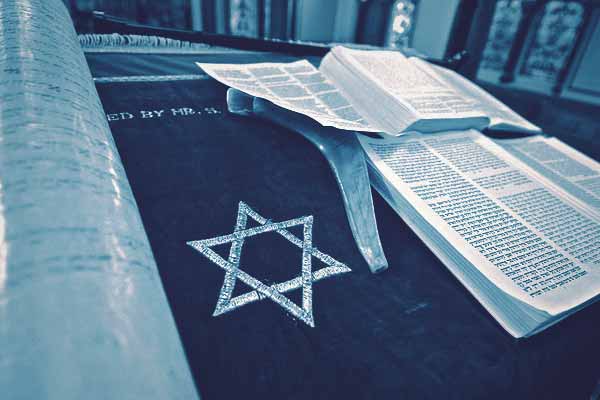On Yom Kippur, Jews all over the world go through a process of atoning for their hurtful actions and sins. Just before Yom Kippur, I went to a talk on the holiday by Rabbi Yehoshua Karsh, a well-known Jewish educator in the northern suburbs of Chicago. Rabbi Karsh was of the opinion that God purposely made humans prone to the errors of hurtful actions and sins rather than being perfectly moral. And this is because it’s only through atoning for our hurtful actions and sins – in effect, transcending above them – that God’s creation is truly made perfect.
I would like to explore this notion from a different angle in order to give an explanation as to why this may be so. If Adam and Eve hadn’t sinned in the Garden of Eden and had remained there forever along with their descendants, there would have been no meaningful narrative for humans, no meaningful life history. Paradise has a stultifying effect on human initiative. Everything is basically taken care of. A person is protected against feeling fragile and vulnerable in his life. And with this protection, a person doesn’t feel a strong need to make and preserve organic imprints on other people as a foundation for a personal surrogate immortality, and thus, a preparation for death. But now that people have been permanently expelled from this paradise, they do feel impelled to do things that will have a lasting meaningful effect on other people.
One category of such actions is moral deeds. Doing good things for other people that, if the actions are significant enough, will be remembered by these other people. And one category of moral deeds is atoning for actions that, purposefully or even accidentally, have hurt another person. True atonement for hurtful actions and sins can be a very meaningful way of making and preserving imprints on another person. At the same time, in true atonement, one is baring oneself to receiving the imprint of forgiveness from the person who has been hurt or sinned against. This, in turn, can lay the foundation for a deeper bonding between the two people.
And it is not only humans that are concerned about lasting imprints. When humans ask for God’s forgiveness, they are leaving a much more lasting imprint on God than if they had a perfectly innocent moral life. And when God pardons human transgression, He is experiencing the products of his creation in the strongest way possible.
It is thus a two-way exchange of imprints made and preserved that makes the process of atonement on Yom Kippur so important both to Jews and to God. Human atonement and God’s forgiveness create a transcendental bond that would not exist between God and a people living in paradise. And these two actions create an elevated moral state for the Jewish people that lays the foundation for God’s special pride in his chosen people.
With all of this being said, there is a problem with the process of atonement for all people that occurs as a result of being immersed in modern technological society. To the extent that one becomes numb from being surrounded by modern technology, one is going to become less conscious of all the hurtful actions and sins one commits either against God or against other humans. Or maybe even if one is conscious of the hurtful actions and sins, one will ascribe less importance to them, give them less weight. For a modern Jew on Yom Kippur, he then may go through the motions of a generic perfunctory atonement without being very focused on or very concerned about his hurtful actions or sins and therefore without being very focused on or very concerned about asking forgiveness for what he has done or making positive changes in his behavior. This is the problem of committing hurtful actions or sins in a state of numbness. One is too numb to truly understand what one has done.
It sounds strange to say this, but the hurtful actions and sins that are susceptible to being mitigated by the sinner through atonement have to be first fully experience by the sinner both in terms of their commission and in terms of retrospective awareness. The anguish of real remorse comes as a result of a passionate awareness of having committed a hurtful action or sin. This passionate remorse and awareness are what makes Greek tragedies and Elizabethan tragedies so painful to watch. We identify with the heroes and vicariously cleanse our own souls for our more minor hurtful actions and sins. And we derive comfort from the knowledge that unlike many of these heroes, our atonement for our more minor hurtful actions and sins will allow us to be successfully reintegrated into our communities.
In truth, the religious service of Yom Kippur does not deal directly with individual hurtful actions or sins of individual people. And no one can be aware of all the bad things he has done and this is even acknowledged in the service. But as we slide through life today in our frictionless mediated life narratives, we become too numb to feel most of the time when we hurt or sin against other people. As we gradually start to model ourselves after robots, we become so numb that we don’t feel a need to really atone for actions that we feel incapable of actually doing in the first place. Even though we have done them. This is unfortunate, because the aggrieved party does not have the comfort that comes from receiving the organic imprint of an apology. And the person who committed the hurtful action or sin does not receive the benefit that comes from making and possibly preserving the organic imprint of atonement. Atonement is a very important imprint in the bundle of imprints that a person can make as a way of preparing for death with a personal surrogate immortality. But modern technology is gradually taking this away from us.
© 2018 Laurence Mesirow


























